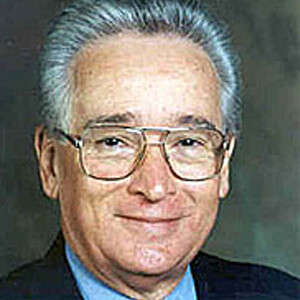Episodes

Thursday Oct 01, 2015
Rare Disease Drug Developer Shows Speed of Business Model
Thursday Oct 01, 2015
Thursday Oct 01, 2015
Vtesse, a rare disease drug development company, this week announced that it was initiating a late-stage pivotal trial for its lead experimental therapeutic to treat Niemann-Pick Type C1 disease. The start of the trial for the nine month old company represents a major milestone and suggest its history with the National Institutes of Health and the rare disease drug accelerator Cydan Development may point to new ways of cutting the time and cost of advancing a drug to market. We spoke to Ben Machielse, CEO of Vtesse, about the rapid pace at which the company has been able to move, the role NIH has played, and whether this points to new ways to accelerate the drug development process.

Thursday Sep 24, 2015
Ensuring Value-Based Care Addresses What Matters to Patients
Thursday Sep 24, 2015
Thursday Sep 24, 2015
The U.S. Department of Health and Human Services has been working to move Medicare from fee-for-service to value-based payments. It’s seeking to get 90 percent of payments to being value-based by 2018. The problem, according to a recent Viewpoint in JAMA, is that when addressing life-ending chronic conditions faced by older patients, traditional professional standards that drive today’s metrics don’t effectively address patient desires. We spoke to Joanne Lynn, director of the Altarum Institute’s Center for Elder Care and Advanced Illness and lead author of the JAMA Viewpoint, about what value-based care means for patients near the end of their lives, the need to recognize the great variance in patient desires, and how healthcare systems will need to change to account for this.

Thursday Sep 17, 2015
California, Aid-in-Dying, and What We’ve Learned from Oregon
Thursday Sep 17, 2015
Thursday Sep 17, 2015
The California legislature earlier this month passed a bill that would allow physicians to aid terminally ill patients who wanted to end their lives. California would become the fifth state to enact such legislation. We spoke to David Grube, national medical director of Compassion & Choices, a nonprofit working to expand end of life options, about the legislation, how attitudes among the public and physicians have changed, and what we’ve learned since Oregon passed the first such law 17 years ago.

Thursday Sep 10, 2015
FDA Guidance on Names for Biologics and Biosimilars and its Implications
Thursday Sep 10, 2015
Thursday Sep 10, 2015
The U.S. Food and Drug Administration recently released long-awaited draft guidance regarding the naming of biologics, biosimilars, and interchangeable biologics. At the same time the agency released a proposed rule to apply the naming scheme to six current biological products with, or expected to soon have, biosimilar competitors. We spoke to Gillian Woollett, senior vice president with the healthcare business strategy and public policy advisory firm Avalere Health, about the FDA’s actions, their implications, and some potential unintended consequences.

Thursday Sep 03, 2015
Understanding the Cost and Value of Cancer Therapies
Thursday Sep 03, 2015
Thursday Sep 03, 2015
The National Comprehensive Cancer Network in October will release a new tool designed to help doctors understand the value of different cancer therapies by taking into account the costs of treatments. The effort from the influential group follows similar initiatives by Sloan Kettering Cancer Center and the American Society of Clinical Oncology. We spoke to Bob Carlson, CEO of the National Comprehensive Cancer Network, about the rising costs of cancer care, the new tool, and what impact it will likely have on drug pricing in the future.

Thursday Aug 27, 2015
Jimmy Carter’s Final Wish: Eradicating Guinea Worm
Thursday Aug 27, 2015
Thursday Aug 27, 2015
President Jimmy Carter, at a recent press conference discussing his cancer diagnosis and treatment, expressed his wish to outlive the last Guinea worm. The Carter Center, since 1986, has led a global effort to eradicate Guinea worm disease with great success and its goal is within reach. We spoke to Ernesto Ruiz-Tiben, director of The Carter Center’s Guinea Worm Eradication Program, about its efforts, the history behind it, and what lessons can be drawn in combating other public health threats throughout the world.

Thursday Aug 20, 2015
The Quest for a Pink Viagra
Thursday Aug 20, 2015
Thursday Aug 20, 2015
Sprout Pharmaceuticals earlier this week won a controversial U.S. Food and Drug Administration approval of Addyi, the first drug approved in the United States to treat female sexual dysfunction. Following the news, Valeant Pharmaceuticals said it would acquire Sprout for $1 billion. We spoke filmmaker Liz Canner, director of the documentary Orgasm, Inc., about Addyi, the drug industry’s long standing pursuit of a female Viagra, and why its approval is troubling to many people.

Friday Aug 14, 2015
Free Speech Ruling May Force FDA to Rethink Off-Label Marketing
Friday Aug 14, 2015
Friday Aug 14, 2015
Earlier this month in a preemptive challenge from Amarin Pharma against the U.S. Food and Drug Administration a federal judge ruled that the FDA cannot prohibit a drugmaker from promoting the off-label use of a drug if it does so through the dissemination of truthful and non-misleading information. The decision about the First Amendment Rights of a pharmaceutical company is seen as a significant ruling in a long-standing battle between the agency and the industry that has played out over the past 20 years. We spoke to John Kamp, executive director of the Coalition for Healthcare Communication, about the case, the issues behind it, and its implications for how the industry and agency will act going forward.

Daniel Levine
Daniel Levine is an award-winning business journalist who has reported on the life sciences, economic development, and business policy issues throughout his career. He is founder and principal of Levine Media Group, host of The Bio Report and RARECast podcasts, a senior fellow at the Center for Medicine in the Public Interest, and author of Global Genes’ annual NEXT report on emerging trends in the world of rare disease. From 2011 to 2014, he served as the lead editor and writer of Burrill & Company’s acclaimed annual book on the biotech industry. His work has appeared in numerous national publications including The New York Times, The Industry Standard, and TheStreet.com.

